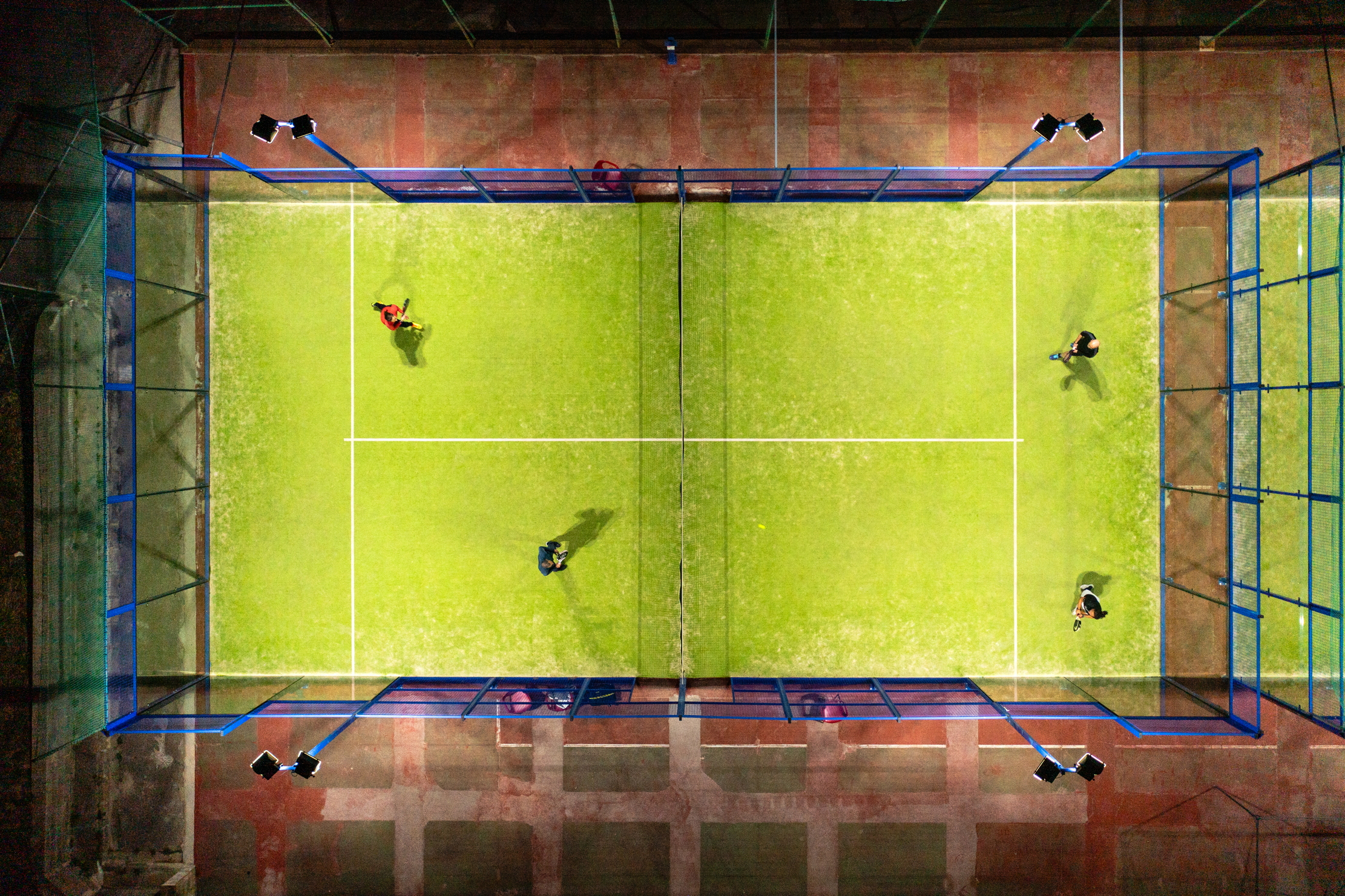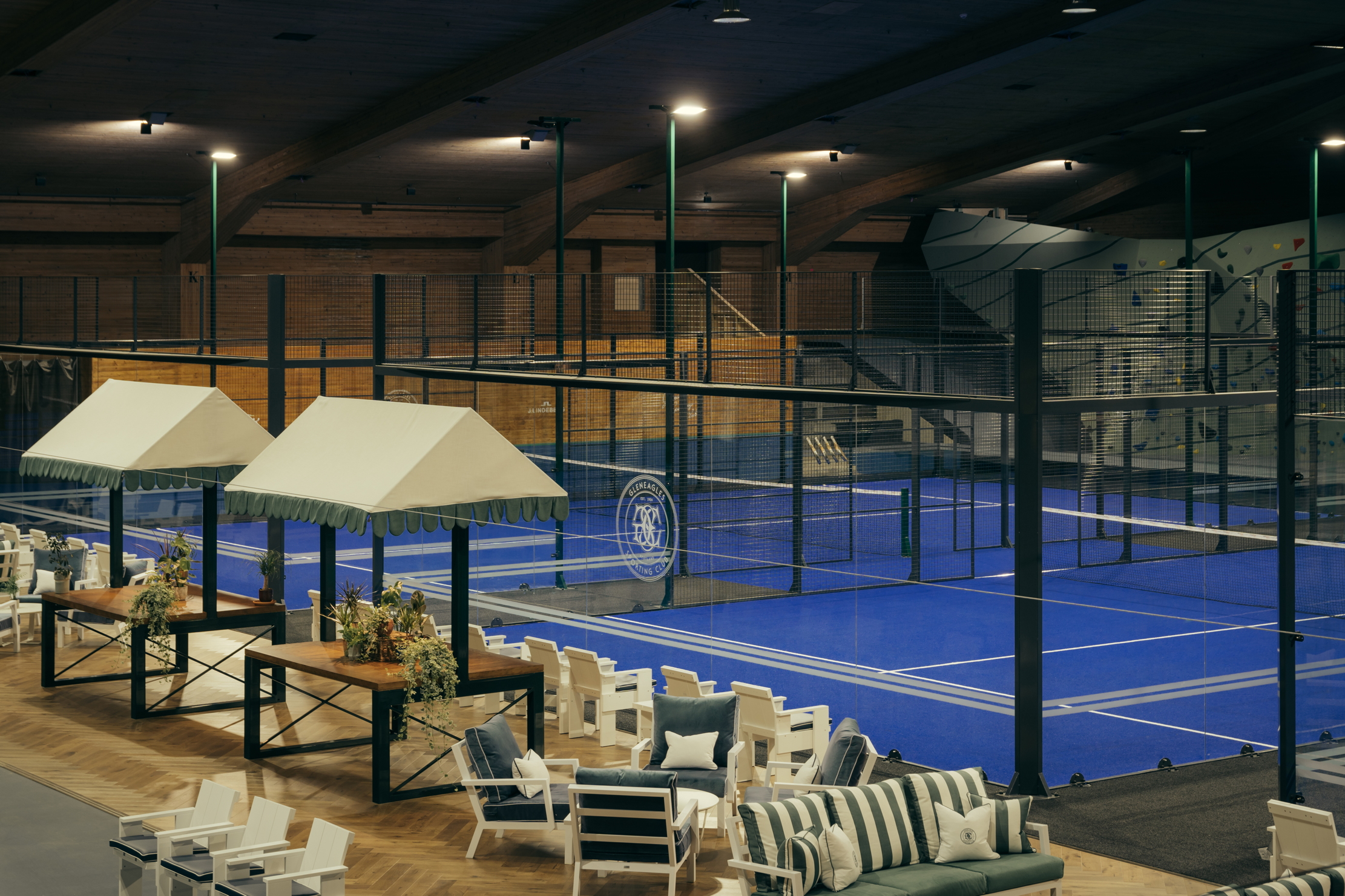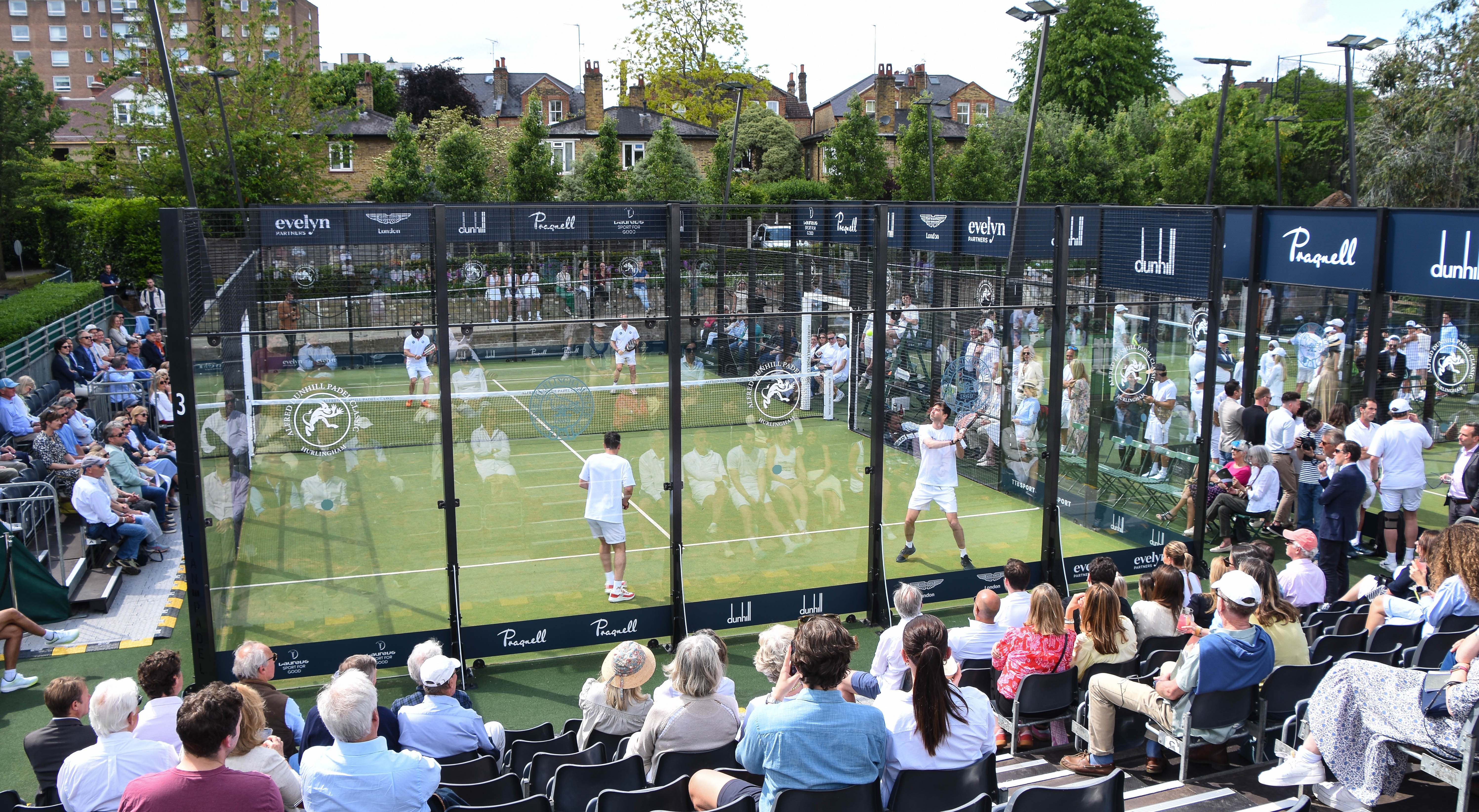Mexico, Miss Argentina and north Norfolk: How padel is taking over the world
What is padel? Why is it so popular? And what can it do for the countryside?


I like to think that I’m pretty good at seeing new trends coming down the line. In 2015, I was the first mid-twenty-something-year-old in my neighbourhood to throw away all my skinny jeans and I’ve long been saying that Catholicism has been due ‘a moment’ with millennials. Just head over to Instagram, if you don’t believe me — Popish frippery is back. But as for a new racket game, sweeping the nation, I’ve been caught (so to speak) with my pants down.
It was a big player in the Norfolk egg farming game who first told me about padel. We were heading through Great Snoring on a trailer one day when he asked me if I’d seen ‘Jimmy Goodley’s new padel courts.’ I assumed that he was talking about some sort of fancy bit of agricultural machinery, but no, I was told this was a racket game and most of the county, apparently, were turning out with some regularity to play.
Whatever Noel Coward said about Norfolk being flat, it isn’t quite true. The Broads might be, but North Norfolk is a rolling place of glacial valleys and chalk streams. Sitting (as of two years ago) on the skyline above East Barsham, very near where Henry VIII walked to Walsingham to pray for a male heir, is the most extraordinary padel court complex. At a glance, you could be forgiven for thinking the structure holds grain, but on getting closer you realise it’s all glass and sheen; fully insulated and fully flood lit. Within, people play a sport of Mexican origin that is sweeping the world.
Over the past three years, there has been a 286% increase in participation in the UK in padel. And by 2026, there are expected to be 6000 courts in Britain, from the Highlands — including courts at Gleneagles Hotel — all the way down to a new court in Padstow. It’s said that the sport originated the same year that Bob Dylan’s first country album, Nashville Skyline, was released. It was 1969 and Enrique Corcuera Jr. and his young wife, a former Miss Argentina, decided they were getting too old for squash. They started playing across the court, in a leisurely fashion, rather than towards the wall, and padel was born.

The padel courts at Gleneagles in Scotland
Corcuera Jr., as well as having a beautiful wife, was a successful businessman and right from the start, padel has been popular with a smart set. In 1974, the game was introduced to Spain by Prince Alfonso of Hohenholem, who installed two courts at a hotel he owned in Marbella. Then, just a year later, Julio Menditeguy, who was big into polo and car racing, took the sport to his home country, Argentina, where there are now over 2 million padel players and 10,000 courts.
For a while, it was assumed that the sport ought to be left to those in hot countries — unlike squash it is often played outside — but then, Sweden fell for padel and the rest of the raincoat-wearing world (a few of us anyway) looked on with envy. In Sweden, it went from being a sport nobody had heard of, to there being 4000 courts. If you fancy a game in Stockholm, you currently need to book some weeks in advance.
Back when padel was sweeping Chile, Nick Newbury, a young banker from North Norfolk, was present and watching. It was about 1990 and one evening he scribbled down the vaguest of business plans. It was little more than ‘enjoyed a game of padel — one day, bring this to UK’.
Exquisite houses, the beauty of Nature, and how to get the most from your life, straight to your inbox.
Some three decades later, after kicking banking and becoming a successful entrepreneur, Nick had lunch with George Craig, a local real estate financier who, during lockdown, registered the domain name ‘norfolkpadel.co.uk’ on a whim. At the table, there also happened to be Jimmy Goodley, who had the necessary acres to set the whole thing up. The idea, at the time, seemed brilliant, but as the plan was steadily realised, a degree of panic set in. Nick admitted to me that it occurred to them not infrequently that North Norfolk possibly wasn’t ready for padel and they had no idea how far people would come. The numbers made sense, but the proof would inevitably be in the pudding. There was a chance that Jimmy was going to end up with the world’s most expensive poultry shed.
Nick tells me that they aren’t counting their chickens just yet, but some weeks ago when he walked in one evening to see four local postmen having a knockabout, he realised that they were truly onto a good thing. ‘Nothing world class ever happens in Norfolk’, they told Nick, and all of a sudden they have some of the very best padel courts in the country. Local rumours that the British padel championship will soon be played on the hallowed courts of East Barsham aren’t quite true, Nick confirmed, but the Lawn Tennis Association, which governs padel, has been to visit and they’ve confirmed that the set-up is good enough to host matches of the highest standard.
A post shared by Norfolk Padel (@norfolkpadel)
A photo posted by on
It was a cold February Sunday afternoon when I turned up at Norfolk Padel, half an hour late on account of having got a pick-up truck stuck on the way. I had been culling deer early that morning and I was dressed in blaze orange. Jimmy’s son, Gus, who at four years old is the youngest player-cum-staff member greeted me at the door. His pet rabbit, he told me, by way of a hello, sadly died recently and he wanted to know why A. I hadn’t brought my dog, and B. why I was wearing orange trousers.
I wouldn’t, Jimmy told me while making me a quick coffee, be playing Gus. Instead we’d have a game with one of his daughters and the resident coach. I was all ready for a situation a little like that scene in Martin Amis’s novel Money when John Self takes on a younger opponent and almost dies of exhaustion on the court — ‘after five minutes I was playing with more or less a permanent mouthful of vomit’ — but happily padel isn’t like that. ‘You see’, Jimmy said to me, ‘you’re no good at ball sports and yet here we are rallying.’
And he was right — there were stints when we were knocking it back and forth quite merrily. The trickiest part, as far as I could see, is letting the ball bounce first on the glass back wall before you hit it forwards again (a shot called the ‘contrapared’ — a lot of the game has Spanish terminology). It is, however, a game of cunning ball placement rather than sheer power. Not infrequently, Jimmy explained, do they have three generations playing together. Crucially, it possibly stands alone in being a sport that you can simply take up. A round of golf for the inept and inexperienced isn’t much fun. Nor, as I found out for another publication recently, is it advisable to get into a boxing ring if you don’t have your footwork down, but padel can be played by all comers.

Crowds watch the Alfred Dunhill Padel Classic at the Hurlingham Club in West London.
I didn’t feel it appropriate to say it at the time, but ball sports aren’t really my thing and yet every time I pass that Norfolk Padel sign I feel a sense of happiness. The countryside is a place where there are fewer and fewer things to do. First they banned foxhunting, most rural pubs are having a hard time, and in rural towns it sometimes feels like every second shop is shut. Norfolk Padel was built in part by the North Norfolk Rural England Prosperity Grant Fund. Funds like it, and the energy of Nick, Jimmy, and George, matter greatly because it matters that people throughout the greener and pleasanter parts of England have things to do and reasons to come together.
Nick told me that there was an old boy from Wells-next-the-sea, a lifelong devotee of tennis, who came along to the opening day out of curiosity and to see what it’s all about. Some weeks later he said to Nick he was delighted because despite no longer being able to play tennis on account of his Parkinson’s, he can manage padel. It has given him something to do and something to look forward to. Meanwhile you’ve got Gus going at it too, despite not being quite old enough yet for tennis. It is a way into tennis, and a way out of it, as well as being something all of its own. But crucially it’s pretty eccentric, with its grand old world origins, royal patronage, Latinate lexicon, and sense that it wouldn’t be quite right to take it too seriously.
Everybody thought it a little odd on that trailer in Snoring — the idea that padel had arrived in Norfolk — but maybe in some strange sense, padel had come home. It is normal, as they say, for Nelson’s county.
Patrick Galbraith is an author, journalist, former editor of Shooting Times, and a regular contributor to Country Life.
